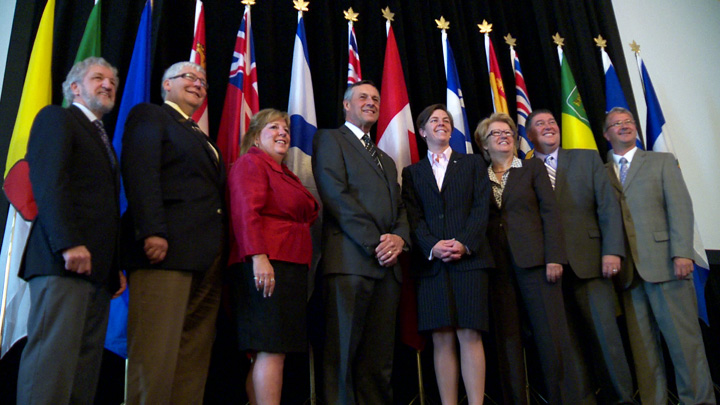SASKATOON – Canadians should come first when it comes to local jobs, according to federal, provincial and territorial labour ministers as they gathered in Saskatoon for their annual meeting.

In her first meeting with her provincial counterparts, federal Labour Minister Kellie Leitch focused on the need to hire from within before turning to other nations.
However, she and Saskatchewan Labour Minister Don Morgan said they want to improve Canada’s temporary foreign workers program.
“We need to ensure that temporary foreign workers do not displace Canadians but we want to be able to streamline the process so that we’re able to have temporary foreign workers come into provinces that need to have additional labour,” Morgan said, adding this includes removing bureaucratic barriers for sectors that require more workers than local labour can provide.
The news follows the federal government’s decision in the spring to change the temporary foreign workers program to prevent abuse.
One of the most notable changes was the foreign workers application fees which gained notoriety for how they would affect foreign musicians.
The new rules shifted administrative fees from taxpayers to the workers, increasing how much employers and foreign employees would pay to work in Canada.
Some critics said it would limit the ability for foreign workers, like musicians, to come to Canada and others felt such fees were unnecessary, but Leitch said Canadians shouldn’t shoulder the cost of bringing in foreign labour.
“It’s a nominal fee,” she said. “We did extensive consultations across the country in every province so that we could streamline the system and provide opportunities for employers to have workers available sooner and also to decrease our administrative burden.”
Although they have not reached pre-2008 levels, Canada’s unemployment numbers have steadily decreased since the end of the recession.
Saskatchewan boasts the country’s lowest unemployment rate at 4.2 per cent, but Canada’s 2013 employment growth is on track to be the slowest since 2001, outside the recession.
The ministers also discussed pension reform, at a time when baby boomers across the nation are counting down their work days. A new “shared risk” model being explored in New Brunswick was touted as a potential solution to Canada’s aging population and unstable pensions.
“It’s a blended model where the risk is shared between the employer and the employee with caps both ways,” Morgan said.
“What we’ll want to do with the model that’s being proposed is ask the financial agencies in our province and have a look at it and see how it fits the models they’re using.”
Other topics included tax breaks for small businesses, training, engaging youth through social media, aboriginal work opportunities, collecting money from failed businesses, hazardous materials and mental health in the work place.

Comments